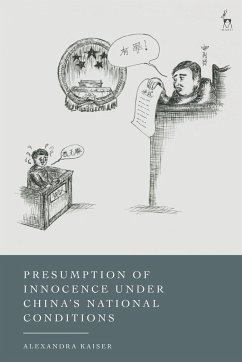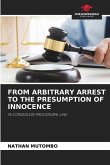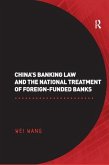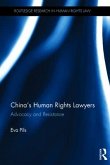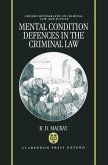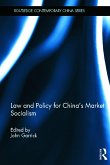This book shines a light on one of the most controversial legal principles in Chinese criminal justice: the presumption of innocence. Drawing on broader legal-political discourses within the Party-state and institutionalised academia, it observes decades of legal reforms in China and explains why the principle of presumption of innocence is contested. Beginning with the Mao era, the book traces the evolution of presumption of innocence from the 1950s to China. It analyses the official narrative of a presumption of innocence 'with Chinese characteristics', which reflects the idea of a presumption of innocence that is understood to suit China's national conditions. The book highlights the impact of the official human rights doctrine of national conditions on the implementation of presumption of innocence. It illustrates how successful competing scholarly calls for greater human rights protection in the criminal justice have been. Even if it could be argued that Chinese law established a fragile presumption of innocence, this book finds that there is no genuine acceptance of the principle of presumption of innocence, as codified in international law, in China. The official doctrine of national conditions has resulted in the human right of presumption of innocence being broken down into various fragments, rendering it ineffective.

